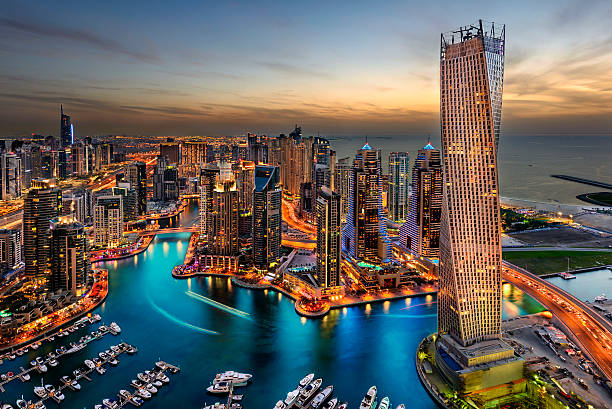Gulf States Counter Dutch Disease
- Erim
- Dec 20, 2023
- 2 min read
Updated: Dec 30, 2023
Shifting from Oil to Tourism and Investments for Economic Strength
Dutch disease refers to the negative effects that may result from a country's currency appreciating rapidly. In 1977, the term "Dutch disease" was first mentioned by The Economics Magazine, referring to an economic phenomenon observed in the Netherlands. In 1959, the Netherlands discovered vast natural gas deposits in the North Sea. This new source of income made exports of all non-oil products less competitive on the world market. Following that, the Netherlands was hit by an economic crisis. The GCC countries, including Saudi Arabia, Kuwait, the United Arab Emirates, Qatar, and Bahrain, face the same risks. In the future, renewable energy sources will become widely used, and economies dependent on oil and natural gas should diversify their sources.
Until the mid-1900s, Gulf countries had a Bedouin nomadic lifestyle, and their sole source of income was pearl gathering. After the discovery of oil resources created preconditions for a 'Dutch Disease’. As a result of the discovery, the social welfare system in GCC countries improved, and the lifestyle changed. The GCC countries developed policies to maintain their newly established luxurious lifestyle. One possible investment strategy is to consider countries such as Turkey or Egypt, which offer extensive recreational facilities and control important highways for international traffic such as the Suez Canal and the Black Sea. Another crucial economic tool for Gulf countries, specifically the UAE and Qatar, is tourism supported by a robust air fleet. Commercial airlines such as Qatar Airways, Emirates, and Etihad have flourished in the last two decades. The UAE and Qatar aim to create artificial tourist attractions, such as the world's tallest skyscraper, Burj Khalifa, UAE, and the Venice-inspired neighborhood, Qanat Quartier, in Qatar. Despite all Islamic rules in Arabian countries, some flexibility is provided for consuming alcohol and pork to promote tourism. It's worth mentioning that the 2022 World Cup took place in Qatar, which helped promote the country to the world.
In summary, Gulf countries, recognizing the risks of Dutch Disease, are actively diversifying their economies. From embracing tourism to strategic investments, these nations are steering away from overreliance on oil and gas, laying the foundation for a resilient and dynamic economic future.
Sources:
Ignatiev, P., 2017. Overcoming of'Dutch Disease': Economic Modernisation of Gulf Monarchies in the 21st Century. Central European Journal of International & Security Studies, 11(1). https://www.cejiss.org/images/issue_articles/2016-volume-10-issue-4/58-cejiss-cejiss-0117-electronic.pdf
Al Ubaydli, Omar. "Economics 101: what is Dutch disease and why hasn’t the GCC contracted it?", thenationalnews.com, March 04, 2017. https://www.thenationalnews.com/business/economics-101-what-is-dutch-disease-and-why-hasnt-the-gcc-contracted-it-1.76605
Chan, James. " What Is The Dutch Disease? Origin of Term and Examples", investopedia.com, October 31, 2021.




Comments